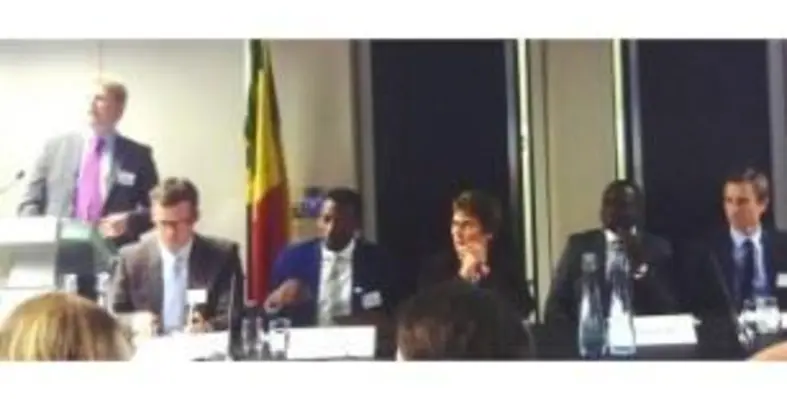At the launch of the Senegal-UK Chamber of Commerce, held this week in London, panellists outlined the wide range of opportunities they believe will be available to international investors
The panellists agreed that Senegal's security, stable democracy and observation of the rule of law made it an appealing country for investment, with an anti-double tax agreement between Senegal and the UK providing an extra incentive for British companies.
HE Professor CA Dieng, Senegalese ambassador to the UK, named agriculture, in particular fishing; business tourism; arts, crafts and textiles; mining; building and public works; and oil and gas as the main industries where investors could potentially benefit from significant returns, as well as boosting the Senegalese economy.
Aliou Diallo, representing the Senegalese Embassy at the event, said that fishing off the West African country's coastline is a "main export product" with markets in Japan, India, France and Canada, and added that there was room for further exports to the UK.
Michael Amaning, representing Invest In Africa, recommended investing in the country's many infrastructure projects.
"Right now, there is a huge appetite for investment in infrastructure [such as] universities, dry docks, social housing and railways," he told guests at the launch.
Mr Amaning also said there are "huge opportunities" in agribusiness, using the example of cashews as a crop which could boom in Senegal with prices increasing by 30 per cent.
Babacar Ka, principal, Development Partners International, added that healthcare and education also offered opportunities for investors, particularly as Senegal's public education and healthcare facilities are "at capacity". As well as a successful medical school in Senegal, Mr Ka said that there are investment opportunities in projects such as clinics and laboratories.
In regard to financial services, Mr Ka said he was "very excited about the space in the Francophone region", adding that there is a lot of growth in the mobile banking sector.
Catherine Wines, founder of WorldRemit, reiterated Mr Ka's comments on mobile banking: "With less than 50 per cent of Senegalese having access to a bank account, [customers can instead have] an account linked to their mobile number - by sending a text, you can make payments and access financial services ... this is a big development."
Julian Horn, development director, North and Francophone Africa, Lekela Power, works in the field of renewable energy in Senegal but reiterated the importance of developing oil and gas as a "complement to renewables because we need the energy mix". Lekela Power is developing the Taiba N'Diaye 158 MW wind power plant in Senegal, which will meet 11 per cent of the country's energy demand when it is up and running. He said that Lekela Power has been working closely with Senelec and, after 10 years of development, there is just one more permit to obtain before operations can commence.
Significant gas discoveries have been made off the coasts of Senegal and Mauritania, while offshore oil discoveries could prove an additional boon to the Senegalese economy.
When asked by about the progress of cooperation in relation to oil and gas discoveries which straddle the two West African countries, Martin Roberts, principal analyst, IHS Markit and Mr Ka were largely positive about relations.
Mr Roberts said that the size of the gas discovery should "ease bilateral relations", even if relations between the two countries had sometimes been "frosty and tense in the past". However, such a large discovery would be something for both countries to "get their teeth into". He said that Senegal was aiming to go into "major production" of its hydrocarbons reserves by 2021.
Mr Ka said that relations between Senegal and Mauritania were "always good" and sharing the development of the offshore reserves "will improve an already good and stable relationship".
"The new discoveries will boost strong industry [and have] a multiplying effect on the economy," Professor Dieng said. In particular, he said that gas reserves will be predominantly used for the LNG market and paid tribute to BP for their work in developing the Senegalese gas industry.
Mr Diallo said the recent discoveries offered "a lot of opportunity" for Senegal, as well as British investors. Mr Ka told the guests at the launch that while Development Partners International had not yet delved into the Senegalese hydrocarbons market, the organisation had taken up similar opportunities in Nigeria and Ghana and was looking into replicating this in Senegal.












